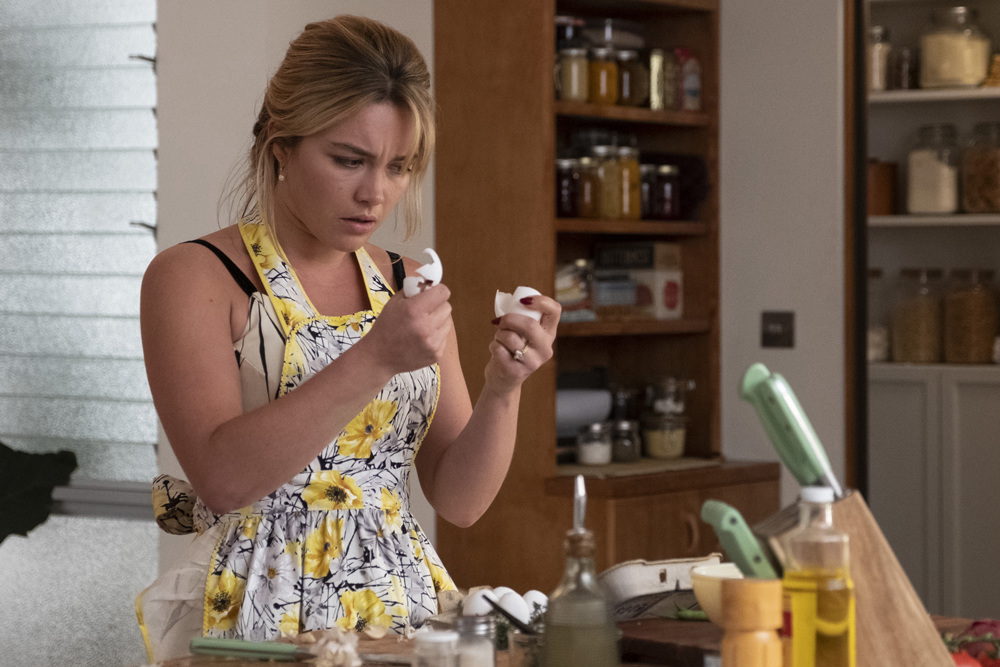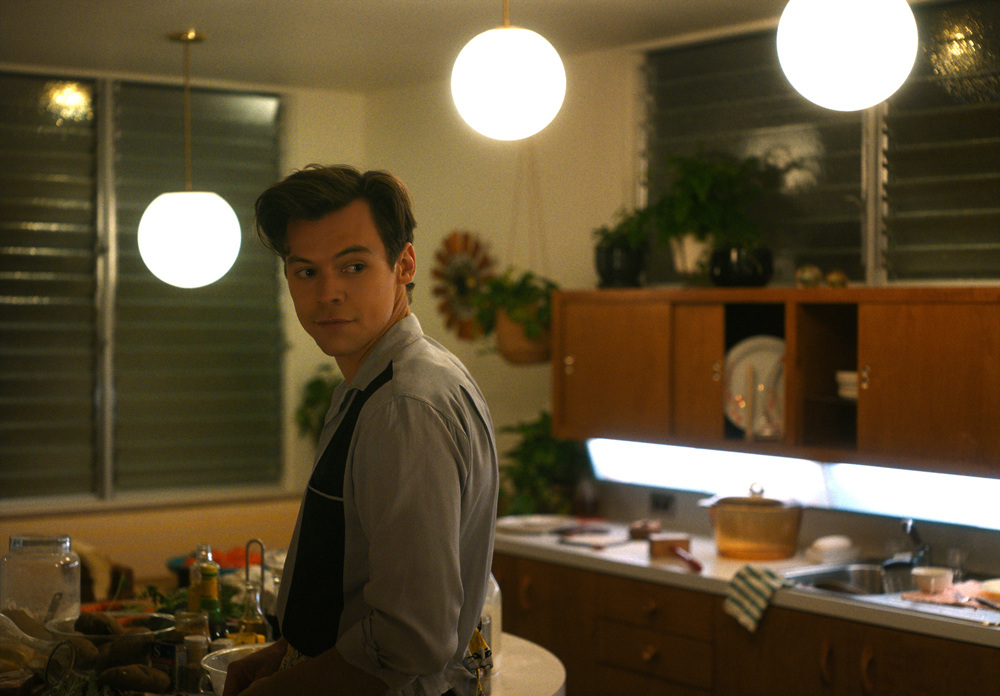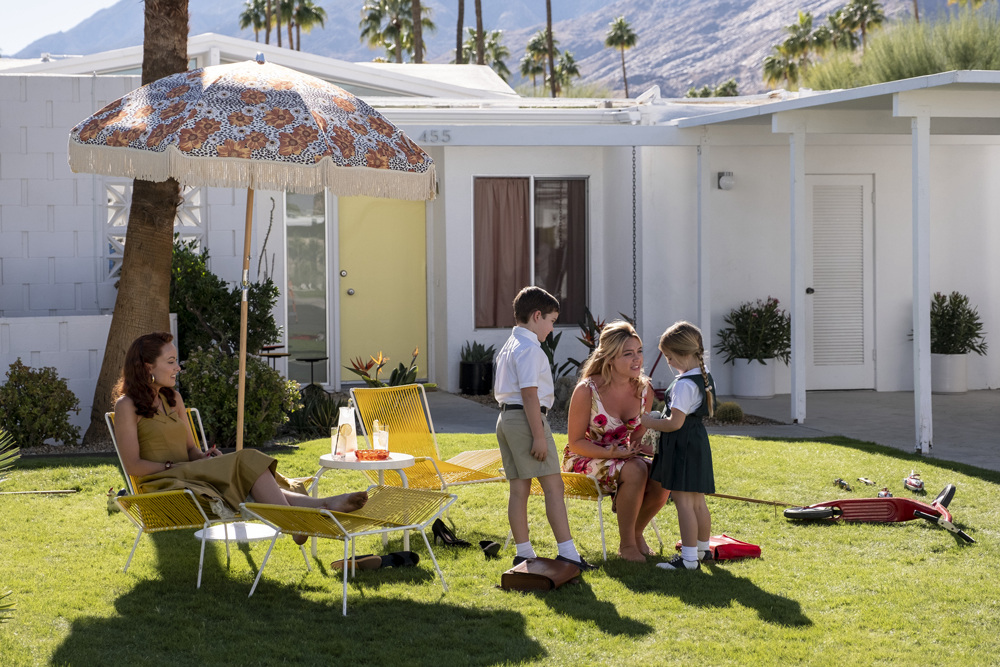Do the incessantly repeated circle motifs actually mean anything, or are they just supposed to look cool? Do circles even look cool? Is there any symbolic or thematic substance to the images announcing that something isn’t quite right? Why the cracked mirrors, the empty eggs, the falling airplane, the closing-in walls? Okay, the closing-in walls clearly mean something, but isn’t it a little heavy-handed? And if we leave aside the question of thematic relevance, doesn’t the reveal that Victory is a tightly controlled simulation ruled over by Frank make all the surreal happenings incoherent, plot-wise? Should we just assume they’re glitches? Why do they feel so much like clues?

Why does Alice never begin to doubt her own mind? Why is she so secure in her sanity when everyone around her is trying to gaslight her? Why would a simulation that’s meant to feel completely immersive and authentic give everyone one of three back stories? Why would a simulation designed by radical right-wing misogynists be so tastefully multicultural when, in real life, incel RETVRN guys ideologically overlap so much with white supremacists? Why is real-world Alice so broke if she’s a surgeon? If she had to be a surgeon why not make her life economically comfortable and fulfilling and have Jack be dissatisfied with it anyway because he, as the man, isn’t the provider? Maybe she’s meant to be a resident or something? But isn’t she the lead surgeon in that one scene of her in the operating room? Why is their apartment so dark and dingy? Isn’t the idea that women’s options are either “housewife with great furniture and great sex” or “girlboss workaholic with a crappy apartment and no sex” horribly limiting? Isn’t it, in fact, exactly the dichotomy incels believe in—that independent women are doomed to misery? Has Olivia Wilde ever met a poor person? Does she know that the median salary for a surgeon in America is $208,000 a year? Does she know that the median American income is $31,133 a year? Isn’t it sort of messed up to mount a whole campaign about how much pleasure women get to feel in your movie when all the pleasure occurs within the confines of a repressive male fantasy? Why make Alice’s real life, the one Jack stole from her, seem so utterly joyless? And if it is joyless, why not contend honestly with the seductions of the Victory simulation? Wouldn’t you want to stay in the gorgeous midcentury modern Palm Springs mansion with a hot husband who loves going down on you? Why leave the interesting tensions between liberal feminism, socialist feminism, and the resurgent, reactionary fantasy of being taken care of so thoroughly unexplored?

Why is Harry Styles in this movie? Why make him act opposite Florence Pugh? Why make him play an American who decided to be British in his fantasy simulation instead of just letting him be British throughout? Is there any possible reason besides, “He couldn’t do the accent that well but we wanted to give him a couple of scenes to try?” Will I be canceled for pointing out that Shia LaBeouf would have been the better and more interesting casting choice? Why is it that if you die in the simulation you die in real life? How has the concept from the 2006 horror film Stay Alive permeated pop culture to the extent that we’re supposed to hear that and just go with it? Is it bad that I laughed when Wilde’s character said her children were dead? Wouldn’t it be more interesting if Alice felt any meaningful ambiguity about killing her husband? Why is the pacing so weird? Who decided there needed to be a car chase? Why does the script step back from any moment that might lead to genuine emotion? Why waste so much below-the-line talent on such a weak story?

Why are none of these women dissatisfied with their conformist 1950s lives because those lives are unsatisfying? Why are they instead only upset when they learn it’s a façade? Why aren’t they bored, angry, hooked on benzos, searching for meaning, quietly resenting their husbands, feeling trapped, trying to assert independence and meeting resistance at every step, as women living this way actually were and did? Why are they so happy? Just because they’ve been told they should be? Doesn’t that imply that actually women would be happier living under patriarchal oppression, as long as they don’t know there are other options? As long as they get to go shopping and drink cocktails? Is that not wildly ahistorical? Why does this film have so much contempt for women?






 in your life?
in your life?

